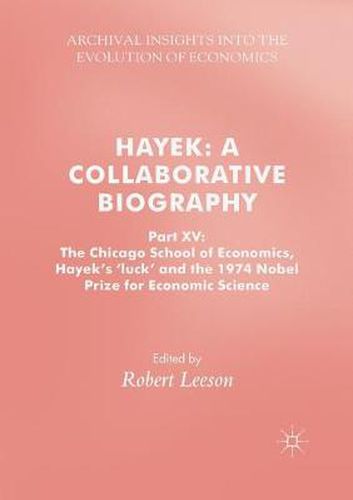Readings Newsletter
Become a Readings Member to make your shopping experience even easier.
Sign in or sign up for free!
You’re not far away from qualifying for FREE standard shipping within Australia
You’ve qualified for FREE standard shipping within Australia
The cart is loading…






This title is printed to order. This book may have been self-published. If so, we cannot guarantee the quality of the content. In the main most books will have gone through the editing process however some may not. We therefore suggest that you be aware of this before ordering this book. If in doubt check either the author or publisher’s details as we are unable to accept any returns unless they are faulty. Please contact us if you have any questions.
On 9 August 1974, Richard Nixon resigned to avoid impeachment; on 29 April 1975, the United States scuttled from their Embassy in Saigon - optics that were interpreted as defeats for the ‘International Right’. Yet in 1975, Margaret Thatcher became leader of the Conservative Party; and in 1976 Ronald Reagan almost unseated a sitting Republican Party President. Pivotal to the ‘turn to the Right’ was Friedrich ‘von’ Hayek’s 1974 Nobel Prize for Economic Science - awarded for having used Austrian Business Cycle Theory to predict the Great Depression: ‘For him it is not a matter of a simple defence of a liberal system of society as may sometimes appear from the popularized versions of his thinking.’ The evidence suggests that Hayek’s fraudulent assertion was uncovered at the University of Chicago in the early 1930s - but not reported. The most likely explanation is self-censorship - for reasons of ideological correctness, fund raising and residual deference to the Second Estate. Four indirect tests suggest that ‘free’ market economists have - in other instances and presumably for fund-raising motives - suppressed embarrassing ‘knowledge’: which suggests that they were perfectly capable of suppressing ‘knowledge’ about Hayek’s non-prediction of the Great Depression. With respect to the Nobel Prize and thus his ability to reach a wider audience, Hayek was fortune in having two loyal ‘intermediaries’: Lionel Robbins and Fritz Machlup who were - and probably felt themselves to be - ‘socially’ inferior to ‘von’ Hayek.
$9.00 standard shipping within Australia
FREE standard shipping within Australia for orders over $100.00
Express & International shipping calculated at checkout
This title is printed to order. This book may have been self-published. If so, we cannot guarantee the quality of the content. In the main most books will have gone through the editing process however some may not. We therefore suggest that you be aware of this before ordering this book. If in doubt check either the author or publisher’s details as we are unable to accept any returns unless they are faulty. Please contact us if you have any questions.
On 9 August 1974, Richard Nixon resigned to avoid impeachment; on 29 April 1975, the United States scuttled from their Embassy in Saigon - optics that were interpreted as defeats for the ‘International Right’. Yet in 1975, Margaret Thatcher became leader of the Conservative Party; and in 1976 Ronald Reagan almost unseated a sitting Republican Party President. Pivotal to the ‘turn to the Right’ was Friedrich ‘von’ Hayek’s 1974 Nobel Prize for Economic Science - awarded for having used Austrian Business Cycle Theory to predict the Great Depression: ‘For him it is not a matter of a simple defence of a liberal system of society as may sometimes appear from the popularized versions of his thinking.’ The evidence suggests that Hayek’s fraudulent assertion was uncovered at the University of Chicago in the early 1930s - but not reported. The most likely explanation is self-censorship - for reasons of ideological correctness, fund raising and residual deference to the Second Estate. Four indirect tests suggest that ‘free’ market economists have - in other instances and presumably for fund-raising motives - suppressed embarrassing ‘knowledge’: which suggests that they were perfectly capable of suppressing ‘knowledge’ about Hayek’s non-prediction of the Great Depression. With respect to the Nobel Prize and thus his ability to reach a wider audience, Hayek was fortune in having two loyal ‘intermediaries’: Lionel Robbins and Fritz Machlup who were - and probably felt themselves to be - ‘socially’ inferior to ‘von’ Hayek.